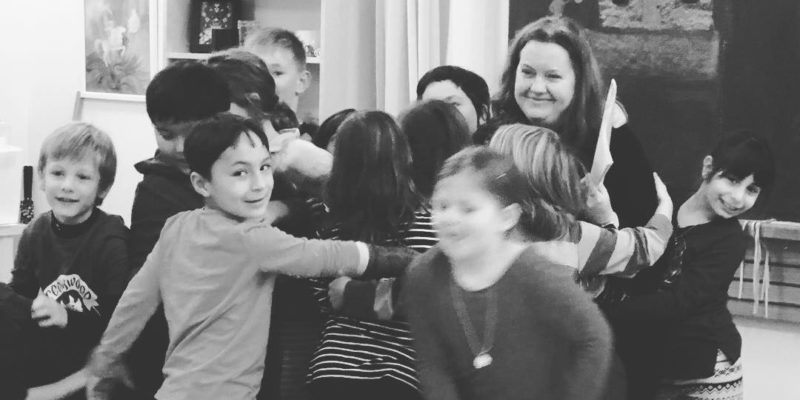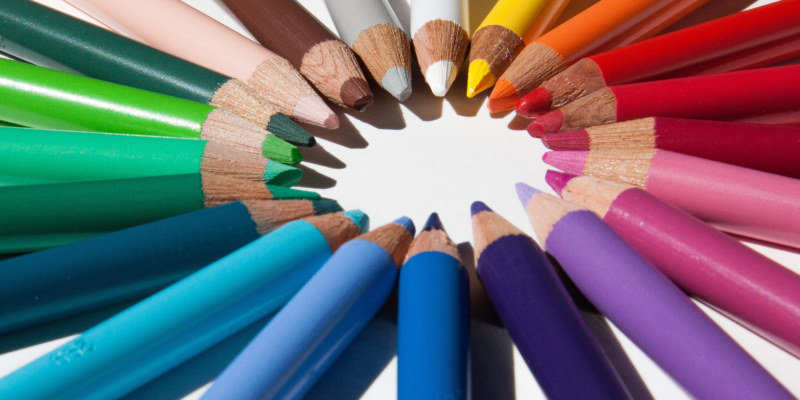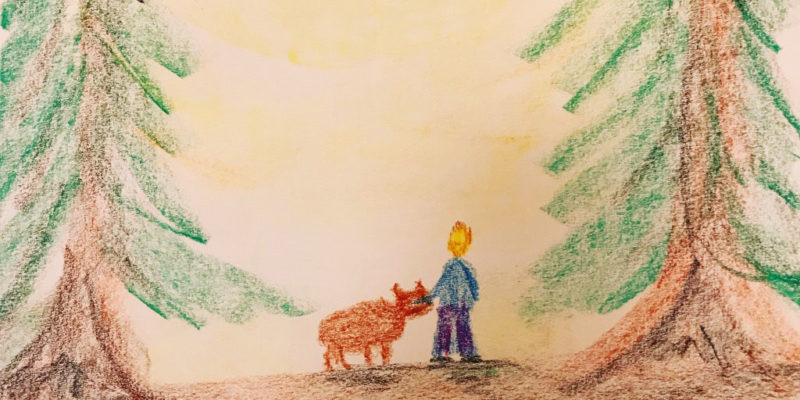“A healthy social life is found only, when in the mirror of each soul the whole community finds its reflection, and when in the whole community the virtue of each one is living.” Rudolf Steiner
A socially healthy class has a finely tuned understanding of each individual part of the group at the same time that each individual recognizes the needs of the group as a whole. As this quote from Steiner suggests, a healthy social group is a delicate balance between the needs of the individual and the needs of the group. Ideally, by working with the social life of the class, the needs of the group and the needs of the individual become one.
I give a lot of attention to working with the social being of my class. For me, this is a lot more than outwardly speaking to them about being kind to each other. Every morning we begin our day with this kind of social work in movement. There is a series of exercises that we do together, first in unison facing each other, then in a round, then not facing each other, then in a round without facing each other. The students take great pride in being able to start together, in unison without even looking at each other.
I’m always on the lookout for activities like this to cultivate this social understanding. In the past we have built human pyramids, timed how long it takes the group to climb to the top of a playground structure, jumped rope with the entire class (with a very long rope!). Things like this have been some of my students’ favorite and healthiest activities.
As we do these things we are learning so much! Can we help our classmates do what is needed (group) without getting frustrated (individual)? How much can we express our own individuality and still honor the needs of the group? This is truly the work that creates world citizens! What could be more important?!
Do you have any similar activities you’ve done with your students? Share them in the comments!




I would love to hear some suggested activities for a first grade class. This class has a culture from Kindergarten of name calling and other unkind behaviors, so any circle activities that would help the social formation would be so helpful to me. Thank you.
It’s hard to know what to suggest without seeing them in action, especially since I haven’t taught first grade. I have, though, taught early childhood and a few things come to mind:
1. Rhythm, rhythm, rhythm. Hold them tightly so there is little to no time for unkindness.
2. Give them a reputation to live up to. Perhaps you can build in them an image of themselves as a kind and generous class. This works really well for individual children. You can say to another student, loud enough to be overheard, “Sally is so kind! Isn’t it great that if you’re looking for a friend you can always turn to Sally.” Or, “Sam is such a hard worker! I know that if I need something done in the room I can always ask Sam and he’ll do it really well.” Make sure you’re truthful and soon they’ll be appreciating each other in the same way.
3. Positive discipline. Compliment them a lot. Tell them how much you appreciate how kind they are to each other. Catch them in the act.
4. When someone is unkind make the whole world screech to a halt. Make a very big deal about it. Tell the class, “Oh, dear, so-and-so said something unkind! We never do that in our class. Let’s watch out for this and remind each other.”
As for social exercises, I wouldn’t really do these until after the 9 year change. The best for the younger grades is to build strong habits because they’re just not aware enough of each other yet (and they shouldn’t be woken up to this yet, either.) Keeping them dreamy and moving joyfully together is the best recipe for social harmony.
Thank you, those are helpful thoughts.
Have you tried therapeutic story telling? Susan Perrow has some great books with stories she has used as well as instructions for how to create your own story. I know this is a little different from the activities suggested above but it is another way of helping them be together.